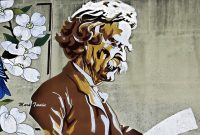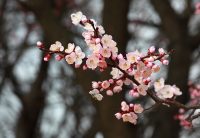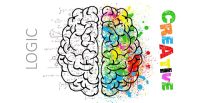「古典」: 誰もが

「古典」: 誰もが読んでしまいたいと思っているが、誰も読みたいとは思わないもの。 – マーク・トウェイン (1835 – 1910): 1900年11月20日ニューヨーク市でのスピーチ(ケーレブ・ウィンチェスター教授の言葉より) More »

「古典」: 誰もが読んでしまいたいと思っているが、誰も読みたいとは思わないもの。 – マーク・トウェイン (1835 – 1910): 1900年11月20日ニューヨーク市でのスピーチ(ケーレブ・ウィンチェスター教授の言葉より) More »

Plum flowers! Don’t forget the springtime, even though your master is no longer with you. When an easterly wind blows, be sure to send me–your sweet fragrance. – Sugawara-no Michizane (845 – 903) More »

東風吹かば にほひおこせよ 梅の花 主なしとて 春を忘るな(こちふかば においおこせよ うめのはな あるじなしとて はるをわするな) – 菅原道真(すがわらのみちざね) (845 – 903) More »
![IMAGE: Beggars mounted run their horse to death. [Set a beggar on horseback and he'll ride to the devil.]](https://www.ok312.net/wp-content/uploads/2018/04/mummification-60510_640trim480-200x150.jpg)
Beggars mounted run their horse to death. [Set a beggar on horseback and he’ll ride to the devil.] – York — William Shakespeare (1564 – 1616): Henry VI. Part III, Act I, Scene IV More »
![IMAGE: Beggars mounted run their horse to death. [Set a beggar on horseback and he'll ride to the devil.]](https://www.ok312.net/wp-content/uploads/2018/04/mummification-60510_640trim480-200x150.jpg)
乞食を馬に乗せると死ぬまで走らす。 – ヨーク公 — ウィリアム・シェイクスピア (1564 – 1616): 『ヘンリー六世・第三部』第一幕第四場 / (限度を知らぬ(成り上がり)者はやがて身を滅ぼす。) More »

“What is mind?” “No matter.” “What is matter?” “Never mind.” – Thomas Hewitt Key (1799 – 1875) More »

「心とは?」「たいした物ではない」「物とは?」「心せずともよい」 – トマス[トーマス]・ヒューイット・キー (1799 – 1875) More »
![IMAGE: Great gains are not achieved except by great risks. / Nothing venture, nothing have. [Nothing ventured, nothing gained. / Nothing ventured, nothing won.]](https://www.ok312.net/wp-content/uploads/2018/04/tigers-50350_640-200x133.jpg)
Great gains are not achieved except by great risks. / Nothing venture, nothing have. [Nothing ventured, nothing gained. / Nothing ventured, nothing won.] More »
![IMAGE: Great gains are not achieved except by great risks. / Nothing venture, nothing have. [Nothing ventured, nothing gained. / Nothing ventured, nothing won.]](https://www.ok312.net/wp-content/uploads/2018/04/tigers-50350_640-200x133.jpg)
虎穴に入らずんば虎子を得ず。 / 思い切ってやらなければ何も得られない。 More »
![IMAGE: Down corn, down horn. [Corn and horn go together.]](https://www.ok312.net/wp-content/uploads/2018/04/corn-2722825_640_cow-3113788_640-200x133.jpg)
Down corn, down horn. [Corn and horn go together.] More »